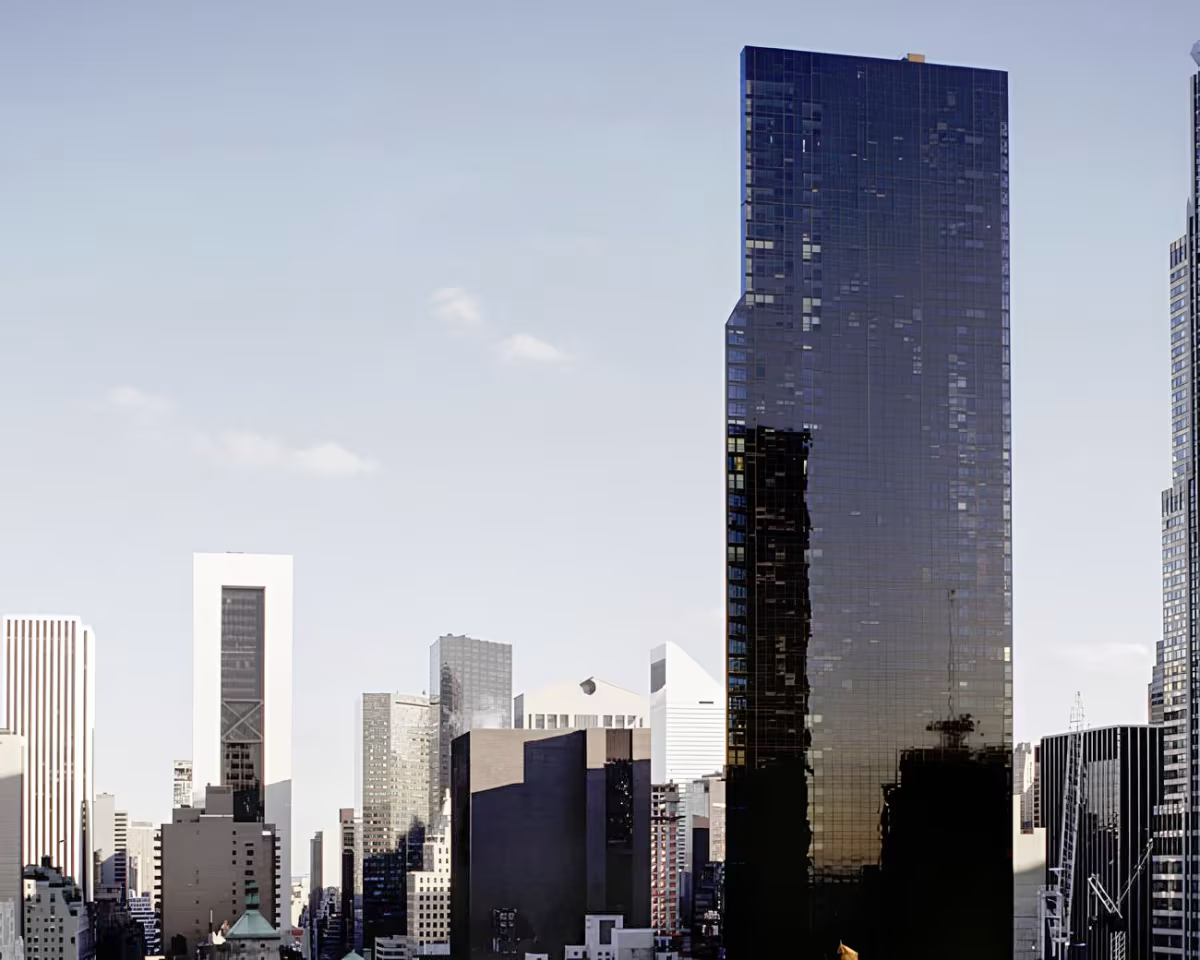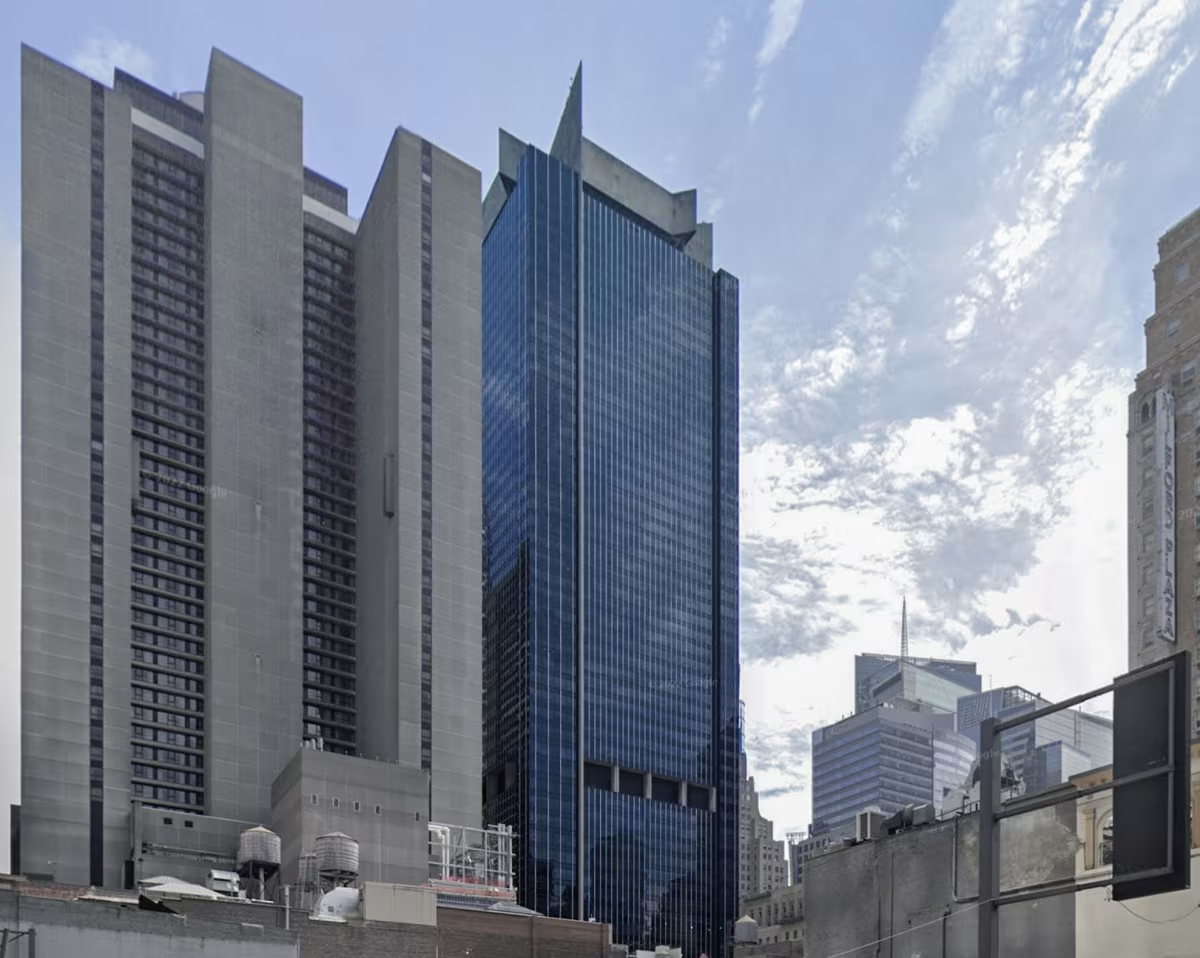Metropolitan Tower vs One Astor Plaza


Comparing the Metropolitan Tower and the One Astor Plaza is interesting because they both rise in New York, NY, yet they were conceived by two different design teams, SLCE Architects and Kahn & Jacobs, and were completed at different points in time. They were finished more than a decade apart.
This contrast within the same city allows us to see how different creative minds interpreted the evolving needs of New York across time.
Let's take a closer look!
Height & Size
These two towers present an interesting contrast in their proportions. The One Astor Plaza rises higher at 745ft (227m), while the Metropolitan Tower reaches 715ft (218m). However, the Metropolitan Tower accommodates more floors with 68 levels above ground, compared to 54 floors in the One Astor Plaza.
This suggests different approaches to interior space design. The One Astor Plaza has an average floor-to-floor height of approximately 4.2m, while the Metropolitan Tower has more compact floors averaging around 3.2m each. The taller building's more generous floor heights might indicate grander interior spaces, higher ceilings, or different programmatic requirements.
These different proportions likely reflect the specific needs each building was designed to serve, whether driven by zoning regulations, client requirements, or the intended use of the spaces within. The contrast shows how architects can achieve different spatial experiences even when working with similar overall building scales.
Architectural Style
Both the Metropolitan Tower and the One Astor Plaza were designed in line with the aesthetic conventions of the Modern style.
Both buildings were completed when the Modern style was already past its peak. This makes them feel like late echoes of the movement, more reflective of continuity or nostalgia than of cutting-edge design at the time.
Uses
The Metropolitan Tower follows a mixed-use model, combining commercial and residential. In contrast, the One Astor Plaza has remained primarily commercial.
The Metropolitan Tower offers 241 residential units.
The One Astor Plaza also provides 225 parking spaces.
Structure & Facade
The two towers rely on different structural systems, reflecting distinct engineering strategies.
The Metropolitan Tower uses a Frame structural system, which relies on a regular grid of columns and beams to sustain its weight, while the One Astor Plaza uses a Framed Tube In Tube system, that combines a strong central core with a perimeter tube of columns.
Yet, when it comes to their facade, they both employed the same solution, a Curtain Wall facade.
A curtain wall is a non-load-bearing facade hung from the structural frame. It is anchored to floor slabs and transfers only its own weight and wind loads, allowing for sleek, glassy exteriors.
| Metropolitan Tower | One Astor Plaza | |
|---|---|---|
| SLCE Architects | Architect | Kahn & Jacobs |
| 1984 | Construction Started | 1968 |
| 1987 | Year Completed | 1972 |
| Modern | Architectural Style | Modern |
| Mixed | Current Use | Commercial |
| 68 | Floors Above Ground | 54 |
| 218 m | Height (m) | 227 m |
| 60,700 m² | Usable Area (m²) | 160,000 m² |
| 3 | Number of Elevators | 36 |
| Frame | Structure Type | Framed Tube In Tube |
| Concrete | Vertical Structure Material | Concrete And Steel |
| Concrete And Steel | Horizontal Structure Material | Concrete And Steel |
| No | Facade Structural? | No |
| Aluminum, Glass | Main Facade Material | Glass, Stone |
| Harry Macklowe | Developer | Sam Minskoff & Sons, Inc. |
| NY | State | NY |
| New York | City | New York |
| 146 West 57th Street | Address | 1515 Broadway |